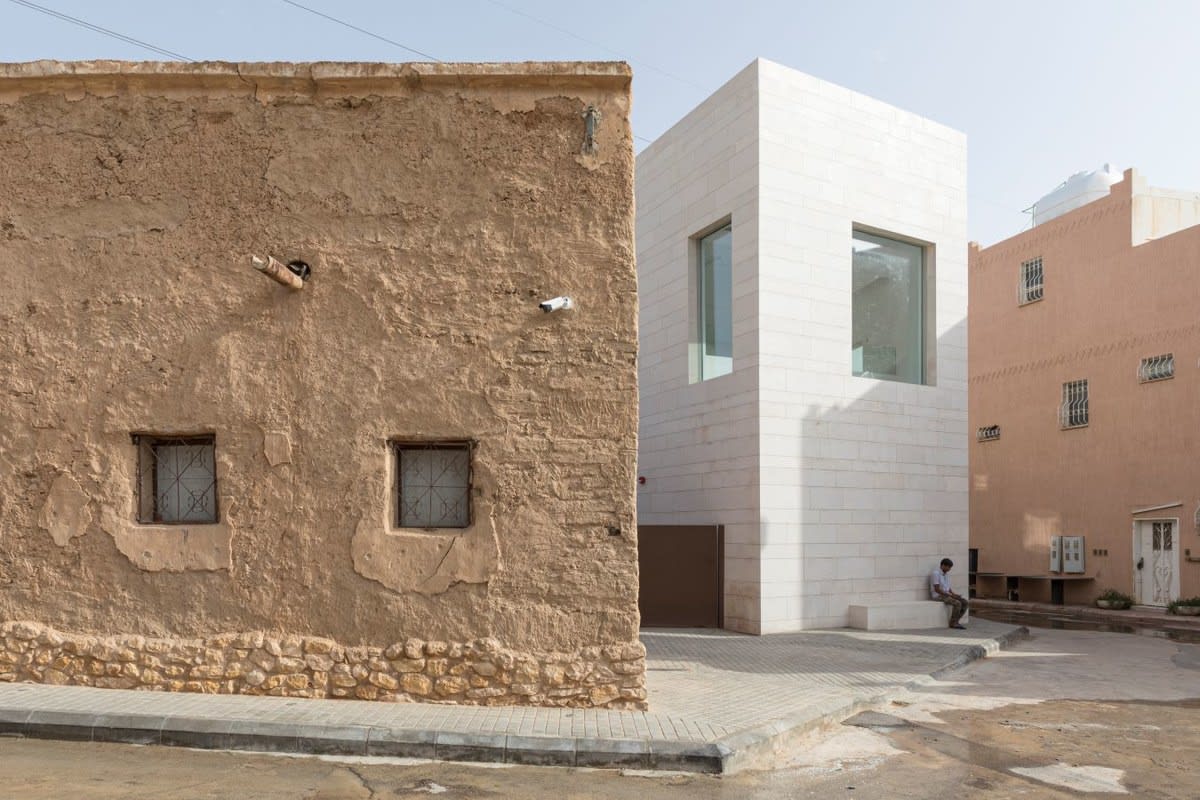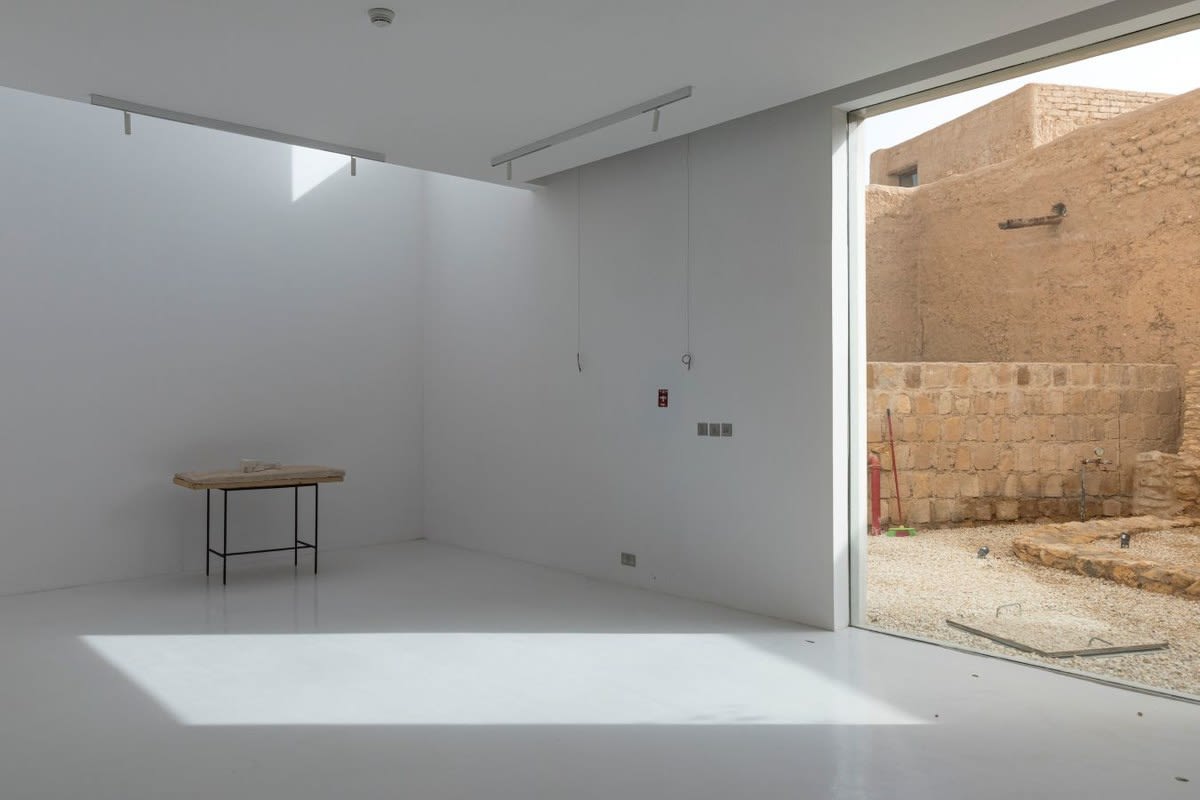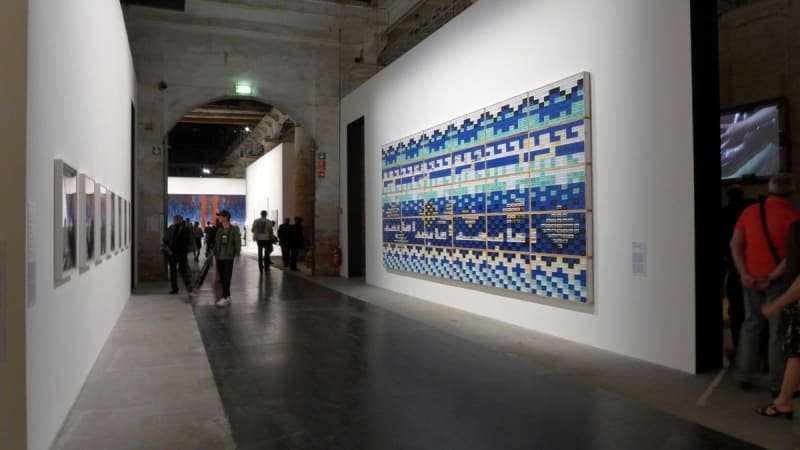As Saudi artist Maha Malluh tells it, she didn’t choose art as a career path. It chose her.
Malluh was born in the coastal city of Jeddah in 1959 to a family who nurtured her artistic tendencies. “I grew up in a big family,” Malluh tells Arab News with a smile. “Since I was little, everyone supported me in becoming an artist. They always used to call me ‘the artist’ and I was a bit embarrassed by it because I wasn’t convinced about my work, but my family encouraged me. My mother and siblings loved art and one of my brothers painted. My family always used to buy art supplies and art books for me.”
Malluh grew up in a Kingdom very different than the Saudi Arabia of today, which has developed so rapidly, culturally, over the past six years. During Malluh’s formative years, there were no art schools. Indeed, art in general was frowned upon, particularly for men.
“In Arab society, it was acceptable for a woman to be an artist, but if a man was painting, he was seen as wasting his time,” she says from her base in Riyadh. “Art was not a serious thing, but a hobby. It was preferable for men to work in business. But now, the situation has changed of course.”
Between 1978 and 1980, Malluh travelled to the United States to pursue her studies in fine art in Dallas and California. She says the programs were traditional, providing a grounding in ceramics, oil and acrylic painting, and pottery, and that it wasn’t an especially eye-opening experience for her.
“What I learned is that you don’t have to go to university to be an artist. If you work daily, you become an artist,” she says.
Malluh eventually returned to Riyadh, but, culturally, she was dissatisfied there. “I felt there was no feedback or any point in participating in shows,” she recalls. “It was a different situation back then. There was no exposure and there was no art criticism to understand where you (were up to) in your artistic career. I didn’t just want to show my works and waste my time.”
Malluh is a conceptual artist. She usually focuses on a central idea rather than aesthetics. She is also a critical thinker — a vital skill that she feels is lacking in education in the Arab world.
“In our schools, we were always taught about things in one way only. What we need is critical thinking,” she says. “Art is art, not a fact. When you look at an artwork, the picture shouldn’t be 100-percent clear. The objective is to (make you) think. Conceptual art allows us to analyze and think about things differently. People’s response is the most important thing. If people don’t feel anything when seeing the work, then I don’t think it’s a successful work.”
One of Malluh’s best-known series is “Food For Thought,” in which she mounts countless everyday objects on walls, many of which were collected from local flea markets, including large, burned pots and patterned serving dishes.
“When objects are no longer being used, they start to have a poetic meaning. It reminds you of certain things in your life,” she says. “Everything has changed now. I feel we are losing a lot of things in our life, even in architecture. I was born in a type of house — built in the Fifties and Sixties — that no longer exists. They’ve been demolished. My children wouldn’t even recognize them.”
In several other works in the series, Malluh has mounted colorful cassette tapes of hardline Islamic lectures, widely sold across Saudi Arabia in the past, on wooden baking trays.
“I feel like everything that we have been through should be remembered by generations to come. This is our history,” she says.
Like most female artists who are also mothers, Malluh had to deal with the ‘work-life balance’ issue. She selflessly prioritized her four children over her art, especially when they were young. “There are choices you make in life,” she says. “I had to raise my children and I was able to work on my art in my free time, but I couldn’t commit to exhibitions and travel. I remember I had an important exhibition at a museum in Holland. There was a big party and the king of Holland was there. I wasn’t able to go and my gallerist was telling me, ‘A career is the most important thing.’ But I couldn’t neglect my family.”

It wasn’t until 2007 that Malluh had her first solo exhibition — “Capturing Light” at Gallery O in Riyadh. At the time, she was in her late forties. Her career has been on an upward trajectory ever since. Today, her works have been acquired by the British Museum, Tate Modern, Louvre Abu Dhabi, and several other cultural institutions.
“When I first started exhibiting, I couldn’t imagine that my works would end up in museums. That wasn’t my goal at all. I wanted to do something that I loved, something that could benefit my society,” says Malluh.

This month, she will inaugurate a passion project (“the highlight of my career,” she says) that she has been working on for more than a decade. She is giving back to the community by opening Shamalat, a cultural center, in Riyadh.
It is situated inside a traditional mud house, which was purchased and renovated by Malluh and her daughter, the architect Sara Alissa, who founded ‘syn architects,’ with Nojoud Alsudairi. A new building has been added to accommodate an exhibition and an artist residency space, along with a workshop. Malluh hopes it will become an inspirational meeting space for young artists.
It is a reminder of Malluh’s deep commitment to art. “Art is a part of my life,” she says. “I always have ideas and I can’t stop.”

